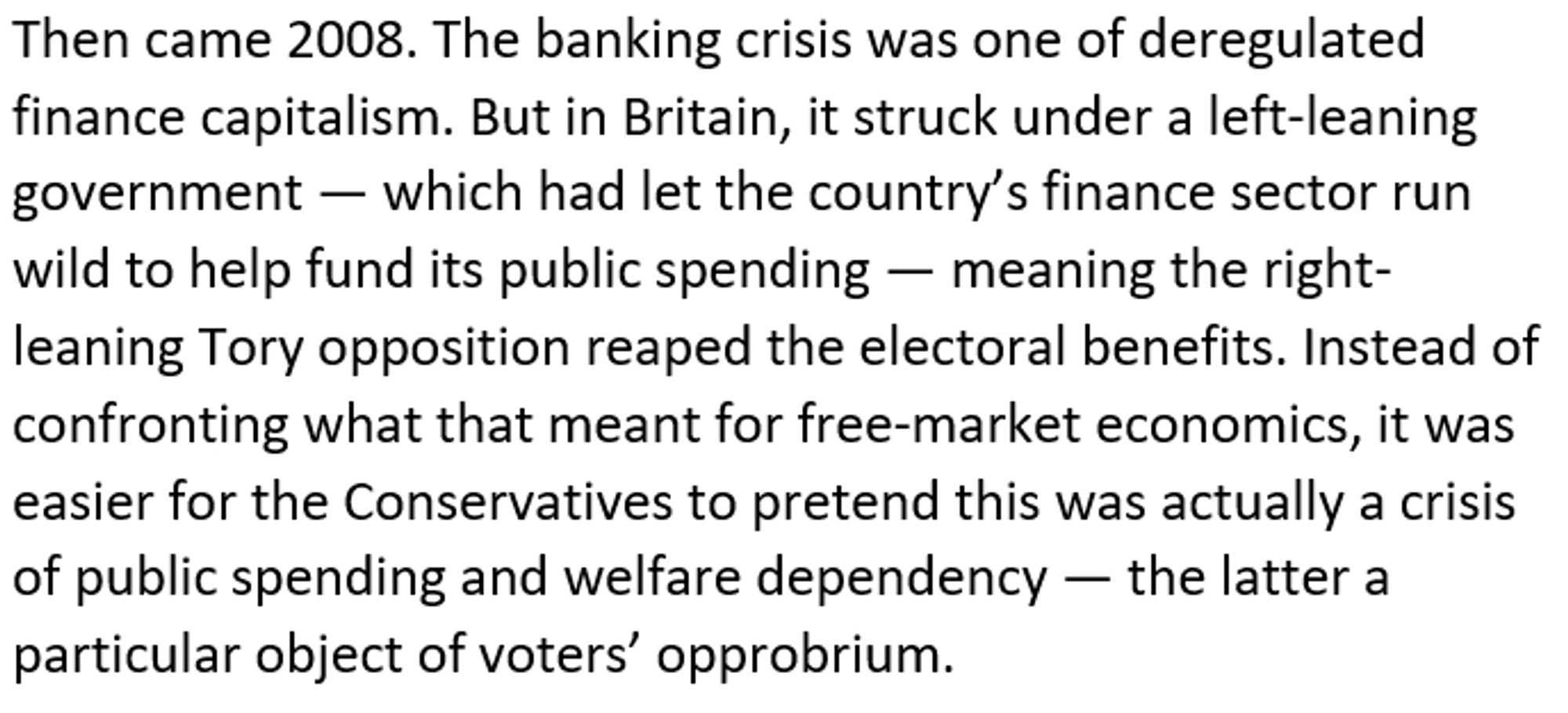The Tories' ideological cult of Thatcherism, combined with a strategic need to oppose New Labour from the Right, meant the Tories either didn't realise or outright ignored that Blair and Brown sought to pursue their aims within a broadly Thatcherite economic model.

Churchill's and Thatcher's legacy was the single market and the EU, the nazi tories have SHIT all over that legacy.
The Tories not recognising the Thatcherite economic model continuity. Do you think they saw this - and it was a deliberate attempt to create a "wedge narrative" ; or Fanboy behavior where Thatcher was their favourite band and they couldn't comprehend/accept New Labour quietly owned a few singles?
Then there's the 2008 financial crisis. The reasons for the banking crisis went to the heart of Thatcherism - but as it hit under a Labour government, the politics of it played out very differently:
